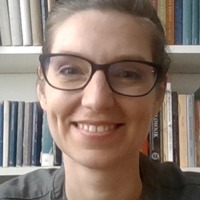
Magdalena Bieniak
LANGTON PROJECT: http://langton.uw.edu.pl/
Born in Katowice (Poland) in 1981.
Graduated in Philosophy at the University of Padua in 2004.
2008: PhD research degree in Philosophy and History of Ideas at the same University (prof. Riccardo Quinto as supervisor) and the Université de Sorbonne – Paris IV (co-tutelle: prof. Ruedi Imbach as supervisor); “Doctor Europaeus”.
Since 2008: numerous fellowships (granted by the University of Padua, MNiSW, FNP, and NCN) and collaborations (Polska Akademia Nauk, Instytut Tomistyczny).
In 2015 two travel fellowships: Medium Aevum (research at the University of Cambridge) and Fernand Braudel Fellowship (research at IRHT in Paris, Marie Skłodowska-Curie COFUND).
2016-2023: Principal Investigator of the research project "Philosophy and Theology of Stephen Langton († 1228) at the Beginning of the University Teaching in Paris. Critical Edition of Quaestiones theologiae (Books II-V) and a Comprehensive Study of his Thought" (NCN, SONATA BIS 5).
2019: Habilitation in Philosophy.
Collaborates with «Recherches de Théologie et Philosophie Médiévales», The Medieval Text Consortium, and «Przegląd Tomistyczny».
Member of IGTM and SISPM.
Address: Instytut Filozofii UW
Krakowskie Przedmieście 3
00-927 Warszawa
Polska
Born in Katowice (Poland) in 1981.
Graduated in Philosophy at the University of Padua in 2004.
2008: PhD research degree in Philosophy and History of Ideas at the same University (prof. Riccardo Quinto as supervisor) and the Université de Sorbonne – Paris IV (co-tutelle: prof. Ruedi Imbach as supervisor); “Doctor Europaeus”.
Since 2008: numerous fellowships (granted by the University of Padua, MNiSW, FNP, and NCN) and collaborations (Polska Akademia Nauk, Instytut Tomistyczny).
In 2015 two travel fellowships: Medium Aevum (research at the University of Cambridge) and Fernand Braudel Fellowship (research at IRHT in Paris, Marie Skłodowska-Curie COFUND).
2016-2023: Principal Investigator of the research project "Philosophy and Theology of Stephen Langton († 1228) at the Beginning of the University Teaching in Paris. Critical Edition of Quaestiones theologiae (Books II-V) and a Comprehensive Study of his Thought" (NCN, SONATA BIS 5).
2019: Habilitation in Philosophy.
Collaborates with «Recherches de Théologie et Philosophie Médiévales», The Medieval Text Consortium, and «Przegląd Tomistyczny».
Member of IGTM and SISPM.
Address: Instytut Filozofii UW
Krakowskie Przedmieście 3
00-927 Warszawa
Polska
less
Related Authors
Johannes Zachhuber
University of Oxford
micaela latini
University of Ferrara
David Seamon
Kansas State University
Kathryn LaFevers Evans, Three Eagles
Pacifica Graduate Institute
Rögnvaldur Ingthorsson
University of Helsinki
Kati (Katalin) Prajda
University of Vienna
Dan Ioan Mureșan
Rouen University
Beatrice Caseau
Sorbonne University
Ayça Çubukçu
London School of Economics and Political Science
Antonella Ghignoli
Università degli Studi "La Sapienza" di Roma
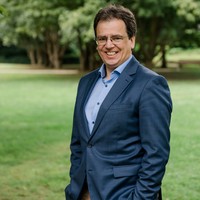
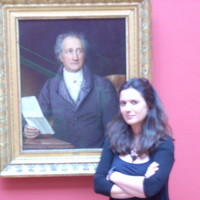



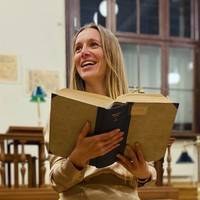
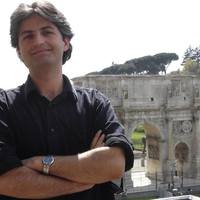
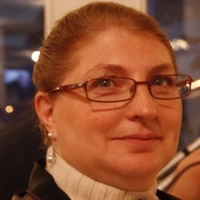


Uploads
Books by Magdalena Bieniak
Articles by Magdalena Bieniak
https://www.degruyter.com/document/doi/10.1515/9783110684827/html?lang=en
The legacy of late medieval Franciscan thought is uncontested: for generations, the influence of late-13th and 14th century Franciscans on the development of modern thought has been celebrated by some and loathed by others. However, the legacy of early Franciscan thought, as it developed in the first generation of Franciscan thinkers who worked at the recently-founded University of Paris in the first half of the 13th century, is a virtually foreign concept in the relevant scholarship. The reason for this is that early Franciscans are widely regarded as mere codifiers and perpetrators of the earlier medieval, largely Augustinian, tradition, from which later Franciscans supposedly departed. In this study, leading scholars of both periods in the Franciscan intellectual tradition join forces to highlight the continuity between early and late Franciscan thinkers which is often overlooked by those who emphasize their discrepancies in terms of methodology and sources. At the same time, the contributors seek to paint a more nuanced picture of the tradition’s legacy to Western thought, highlighting aspects of it that were passed down for generations to follow as well as the extremely different contexts and ends for which originally Franciscan ideas came to be employed in later medieval and modern thought.
analysis of the relations among the versions and among the manuscripts that have transmitted them.
work. The list has a double purpose: first, it is intended to be an aid in locating particular issues discussed within the Commentary, which remains unedited; second, it presents the complex structure of the work, as it includes the transcription of various divisiones textus and shows the way in which the different literary genres follow each other. The internal structure of the Commentary is made visible thanks to the numbers attributed to each section. The transcription
is based mainly upon one manuscript (Basel, Universitätsbibliothek, B II 20); nevertheless, some of its erroneous readings have been rectified thanks to a different
source (MS Assisi, Biblioteca comunale, Fondo Antico, 131). The transcription is completed by three levels of apparatus, which contain, among other things, selected marginal notes and diagrams offered by both manuscripts.
https://www.degruyter.com/document/doi/10.1515/9783110684827/html?lang=en
The legacy of late medieval Franciscan thought is uncontested: for generations, the influence of late-13th and 14th century Franciscans on the development of modern thought has been celebrated by some and loathed by others. However, the legacy of early Franciscan thought, as it developed in the first generation of Franciscan thinkers who worked at the recently-founded University of Paris in the first half of the 13th century, is a virtually foreign concept in the relevant scholarship. The reason for this is that early Franciscans are widely regarded as mere codifiers and perpetrators of the earlier medieval, largely Augustinian, tradition, from which later Franciscans supposedly departed. In this study, leading scholars of both periods in the Franciscan intellectual tradition join forces to highlight the continuity between early and late Franciscan thinkers which is often overlooked by those who emphasize their discrepancies in terms of methodology and sources. At the same time, the contributors seek to paint a more nuanced picture of the tradition’s legacy to Western thought, highlighting aspects of it that were passed down for generations to follow as well as the extremely different contexts and ends for which originally Franciscan ideas came to be employed in later medieval and modern thought.
analysis of the relations among the versions and among the manuscripts that have transmitted them.
work. The list has a double purpose: first, it is intended to be an aid in locating particular issues discussed within the Commentary, which remains unedited; second, it presents the complex structure of the work, as it includes the transcription of various divisiones textus and shows the way in which the different literary genres follow each other. The internal structure of the Commentary is made visible thanks to the numbers attributed to each section. The transcription
is based mainly upon one manuscript (Basel, Universitätsbibliothek, B II 20); nevertheless, some of its erroneous readings have been rectified thanks to a different
source (MS Assisi, Biblioteca comunale, Fondo Antico, 131). The transcription is completed by three levels of apparatus, which contain, among other things, selected marginal notes and diagrams offered by both manuscripts.
Christophe Erismann (Université de Lausanne) presenta il dibattito, svoltosi agli inizi del dodicesimo secolo, intorno allo statuto ontologico delle proprietà relative (ad es. paternitas). Si indaga se tali proprietà relative siano considerate sempre come accidenti; se siano intese come accidenti individuali; e se, nel caso in cui un certo individuo possieda più relazioni del medesimo tipo, ciò significhi che nell’individuo sono presenti più accidenti individuali, uno per ogni relazione, o un solo accidente relativo di tipo universale. Oltre alle opere di Anselmo di Canterbury e di Abelardo, vengono considerate anche trattazioni anonime, in particolare i Commenti C7 e C8 alle Categorie, offrendo inoltre uno sguardo d’insieme sulle scuole logiche nel XII secolo. Si concentra invece su Abelardo lo studio di Alisa Kunitz-Dick (University of Cambridge). L’articolo indaga le diverse, e non sempre armonizzabili, concezioni di locus che si incontrano sia nelle opere logiche attribuite ad Abelardo, in particolare nella Dialectica, Logica ‘Ingredientibus’, Logica ‘Nostrorum Petitioni Sociorum’, sia nelle diverse versioni della sua Theologia. Wojciech Wciórka (Uniwersytet Warszawski) affronta un tema celebre della filosofia del Millecento, la disputa sugli universali. Tuttavia, il testo preso in esame, vale a dire il trattato ‘Quoniam de generali’ attribuito a Gualtiero di Mortagne, non ha ricevuto sinora l’attenzione che meriterebbe per la ricostruzione del dibattito nel primi decenni del secolo. Wciórka per primo esplora le argomentazioni avanzate nel trattato per difendere una teoria realista che egli definisce « audace » (p. XXX), la quale sostiene che l’universale sia l’individuo stesso; mostra
inoltre che, nel suo tentativo, la teoria realista del ‘Quoniam de generali’ ricorre a strumenti abelardiani, in particolare ai cosiddetti “predicati abelardiani”. Nel contributo di Luisa Valente (Sapienza. Università di Roma) si offre al lettore un quadro generale sulla figura di Gilberto di Poitiers, ormai resosi necessario dalle preziose indagini che la studiosa, ed altri, hanno consacrato a questo autore negli ultimi anni. Valente analizza sia i momenti cruciali della biografia del maestro, sia le tematiche fondamentali che ne attraversano la produzione: l’accusa di eresia e la difesa di Gilberto durante il suo processo; la celebre distinzione ontologica fra esse e id quod est; i principi primi, quali Dio, la materia primordiale e le idee; i composti come “aggregati di forme”; il problema dell’individualità e il concetto di persona; infine, la filosofia del linguaggio. Concentrandosi sulla Historia scholastica, Liber Genesis, Mark J. Clark (The Catholic University of America) indaga l’utilizzo della Glossa ordinaria nell’opera di Pietro Comestore. Pur essendo cruciale per la composizione dellʼHistoria, l’impiego della Glossa da parte del Comestore è stato finora oggetto di scarse ricerche. Attraverso una dettagliata analisi del testo, Clark mostra l’intrecciarsi della Glossa, del testo biblico e delle autorità patristiche nell’Historia scholastica, introducendo il lettore nell’intimo del laboratorio del magister.
La parte finale del volume raccoglie edizioni critiche di due quaestiones di Stefano Langton – un autore attivo soprattutto nell’ultimo quarto del XII secolo. Entrambe le edizioni sono precedute da un inquadramento dottrinale della tematica affrontata nella quaestio e da uno studio filologico dei rapporti tra i manoscritti che la trasmettono. Massimiliano dʼAlessandro (Università di Padova) pubblica la quaestio Camb169, Vtrum omnes velint esse beati: lo studioso da un lato prende in esame la trasmissione del testo (quattro manoscritti collazionabili che, probabilmente, trasmettono la revisione di una reportatio) e, dall’altro, ripercorre le fonti principali della discussione sulla felicità nella quaestio langtoniana, in particolare, il libro XIII del De Trinitate di Agostino (utilizzato attraverso la mediazione delle Sententiae di Pier Lombardo) e il libro III della Consolatio philosophiae di Boezio. Magdalena Bieniak e Marcin Trepczyński (Uniwersytet Warszawski) curano invece l’edizione della quaestio Camb62, che affronta una tematica cristologica, vale a dire se Cristo, in quanto uomo, avesse il potere di rimettere i peccati. La ricerca condotta dai due editori mostra che la quaestio è trasmessa in tre versioni (62a, 62b, 62c), non collazionabili tra loro, e delle quali la
versione “c” è quella più elaborata. L’introduzione ricostruisce il probabile ordine degli argomenti della lectio del Langton, all’origine delle versioni scritte, e sottolinea i fini strumenti grammaticali e semantici che il magister mise a profitto per risolvere la problematica cristologica oggetto d’esame.
Con la presente raccolta di studi la redazione e i collaboratori di « Medioevo » vogliono rendere omaggio a Riccardo Quinto, un grande maestro e assiduo studioso della prima scolastica, ricordando la sua insostituibile erudizione e l’acribia di cui la rivista ha potuto godere per numerosi anni.
MAGDALENA BIENIAK – CATERINA TARLAZZI
Volume Includes:
Magdalena Bieniak - Caterina Tarlazzi, “Presentazione”, 7-9.
Christophe Erismann, “Paternités multiples. Les débats sur les relatifs entre Anselme et Abélard”, 11-30.
Alisa Kunitz-Dick, “Peter Abelard’s Various Conceptions of Place (locus): from Attributes of Substances to Collections”, 31-56.
Wojciech Wciórka, “Is Socrates a Universal? Walter of Mortagne on Generality”, 57-88.
Luisa Valente, “Forme, contesti e interpretazioni. La filosofia di Gilberto di Poitiers († 1154)”, 89-134.
Mark J. Clark, “Peter Comestor’s Historia Genesis and the Biblical Gloss”, 135-170.
Massimiliano d’Alessandro, “La Quaestio di Stefano Langton Vtrum omnes uelint esse beati (169)”, 173-216.
Magdalena Bieniak - Marcin Trepczynski, “Christ’s Power of Remitting Sins. A Critical Edition of Stephen Langton’s Quaestio Theologiae 62”, 217-286.
Gregorio Piaia, “Riccardo Quinto: in memoriam”, 287-290.